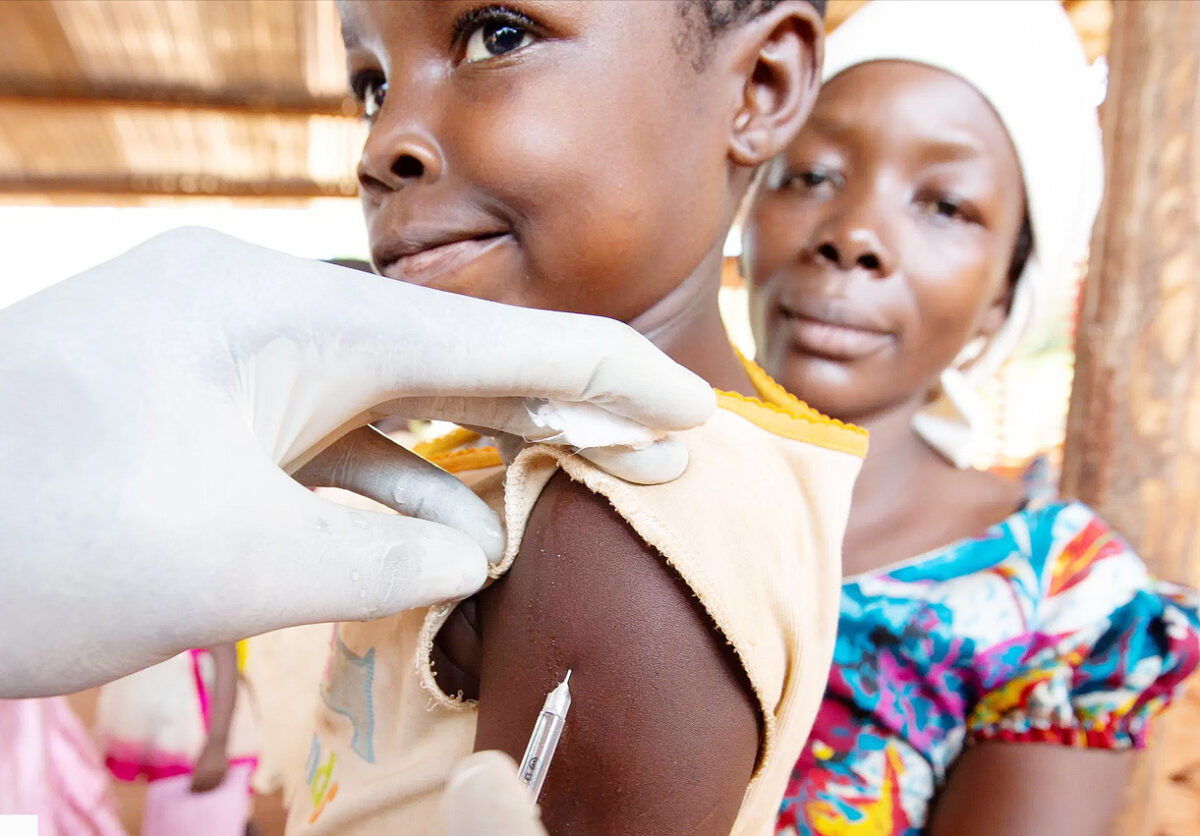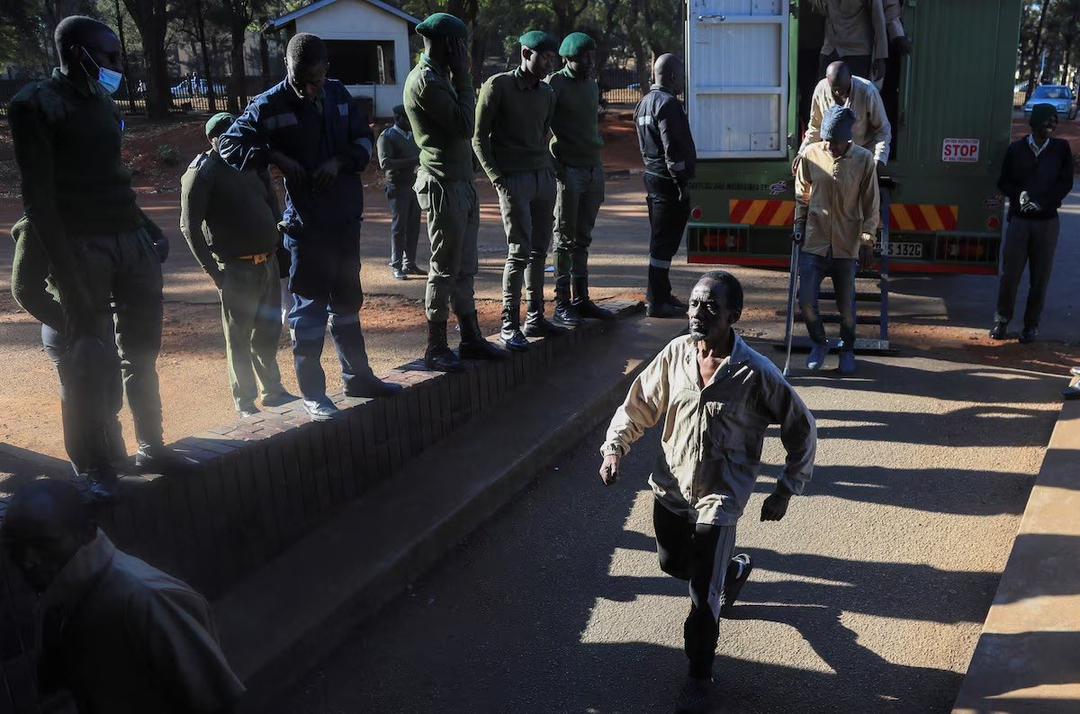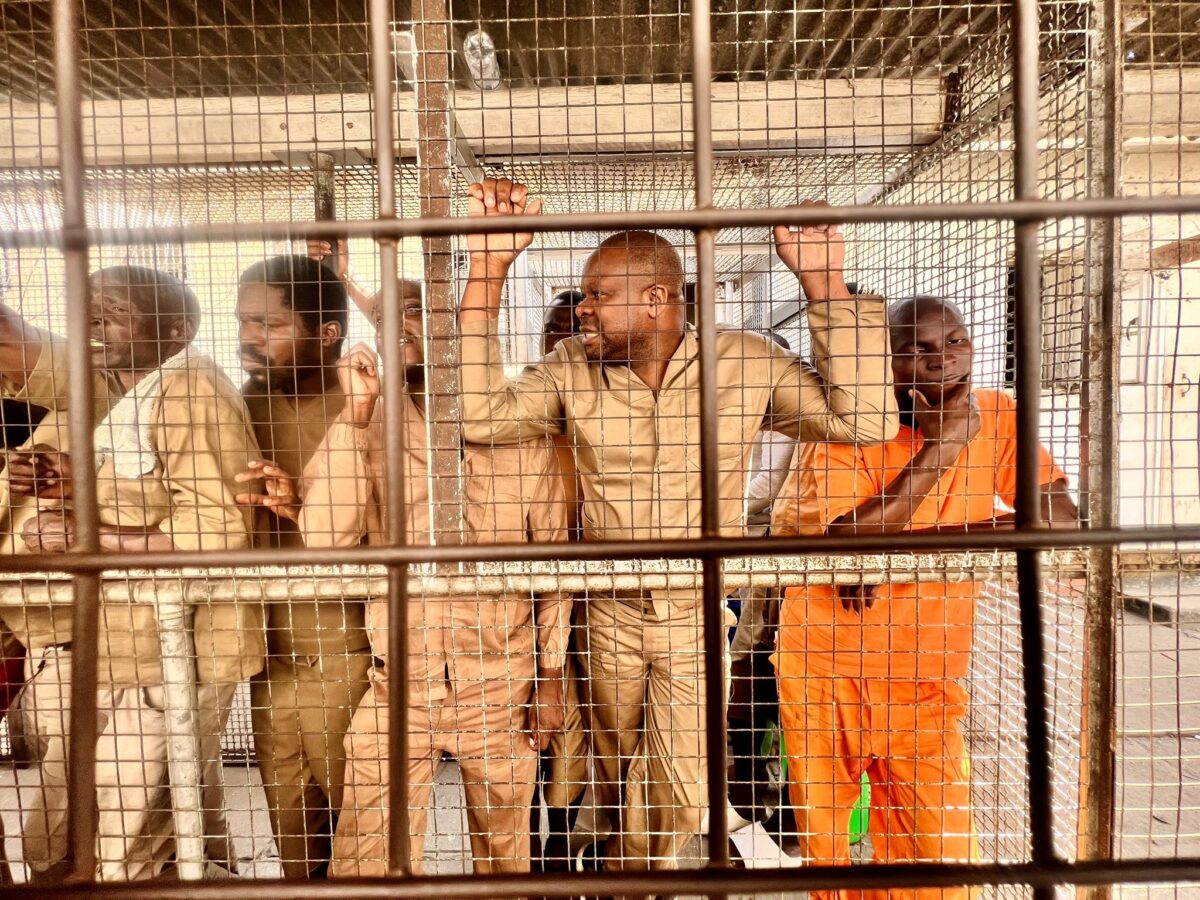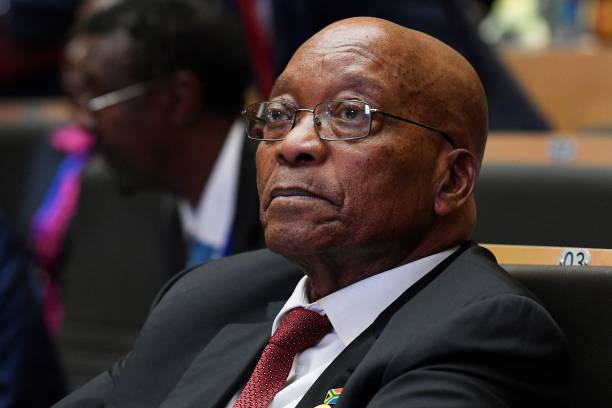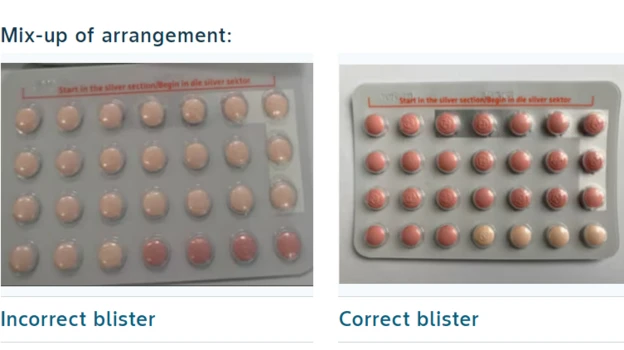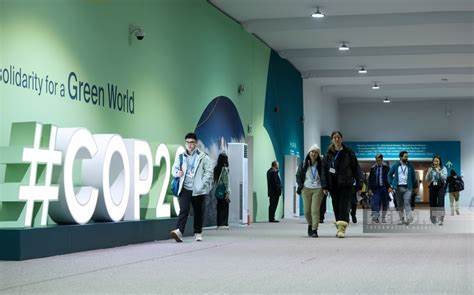BULAWAYO – Zimbabwe has turned down an opportunity to draw down on its allocation of three million Covid-19 vaccine doses under a scheme financed by an international bank citing that it lacks the “cold chain management framework” to take delivery of the single dose Johnson & Johnson vaccines.
The vaccines were to be covered under an African Union plan being underwritten by Afreximbank which is lending money to poor countries to acquire vaccines.
About 385,000 of Zimbabwe’s 15 million people are fully vaccinated after the country received donations of the double-dose Sinopharm and Sinovac vaccines from China, and Covaxin from India. The health ministry says just over a million Zimbabweans have taken at least the first dose.
In recent weeks, however, most parts of the country have run out of vaccines despite government pledges of “one million doses every month” from China in April, May and June as the country targets herd immunity.
ZimLive has seen a June 2, 2021, letter written by Zimbabwe’s secretary for finance George Guvamatanga to Afreximbank in which he says the country “is not yet ready to participate in the August allocation” of Johnson & Johnson vaccines.
Guvamatanga said “measures are still being put in place to establish the cold chain management framework for the vaccines,” while curiously adding that Zimbabwe also needs to set up systems “on management of anticipated adverse effects of the vaccines following inoculation.”
Zimbabwe has so far not published any “adverse effects” from the Chinese and Indian vaccines already administered, and Guvamatanga’s comments will be seen as official scepticism over the Johnson & Johnson vaccine in Harare.
Johnson & Johnson’s Covid-19 vaccine is administered as a single injection and does not require an ultra-cold chain. The American Centre for Disease Control recommends storing the vaccine between 2°C and 8°C, the same range as the Chinese and Indian vaccines.
Neighbouring South Africa has ordered 31 million doses of the Johnson & Johnson vaccine, but the distribution of the drug was temporarily paused for a possible link between the jab and blood clots earlier this year. Scientists have determined that there is a one-in-a-million chance of getting the clot after the vaccine.
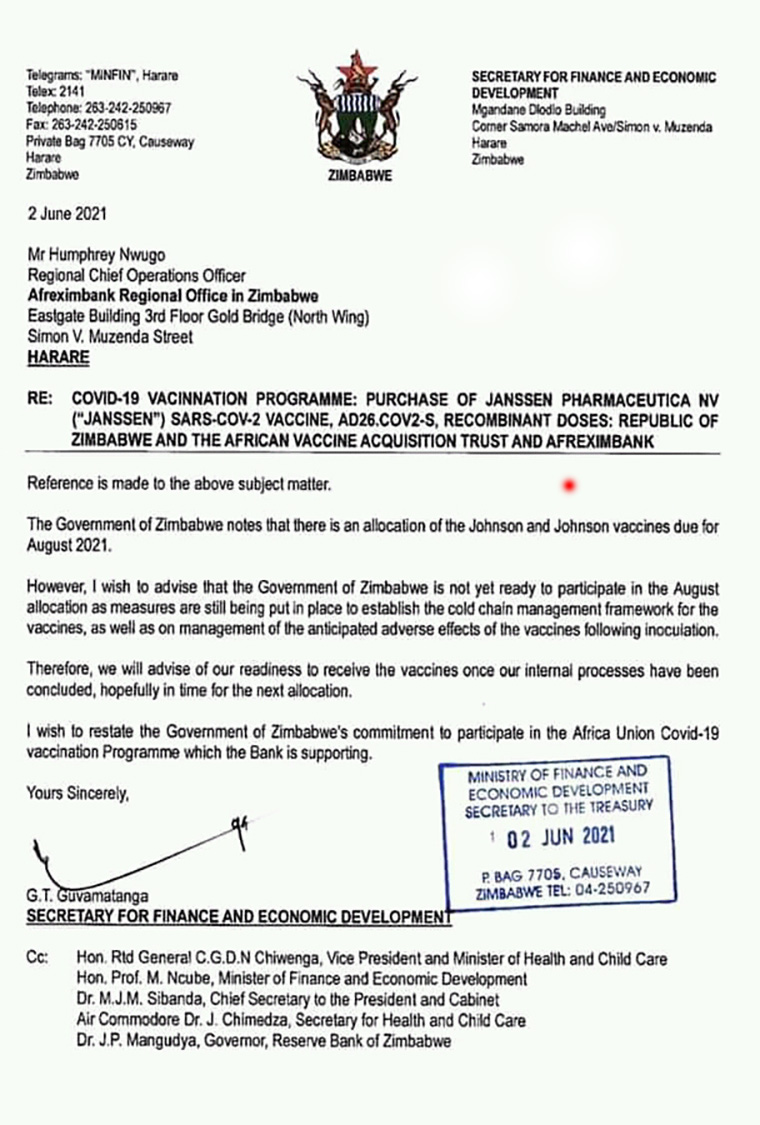
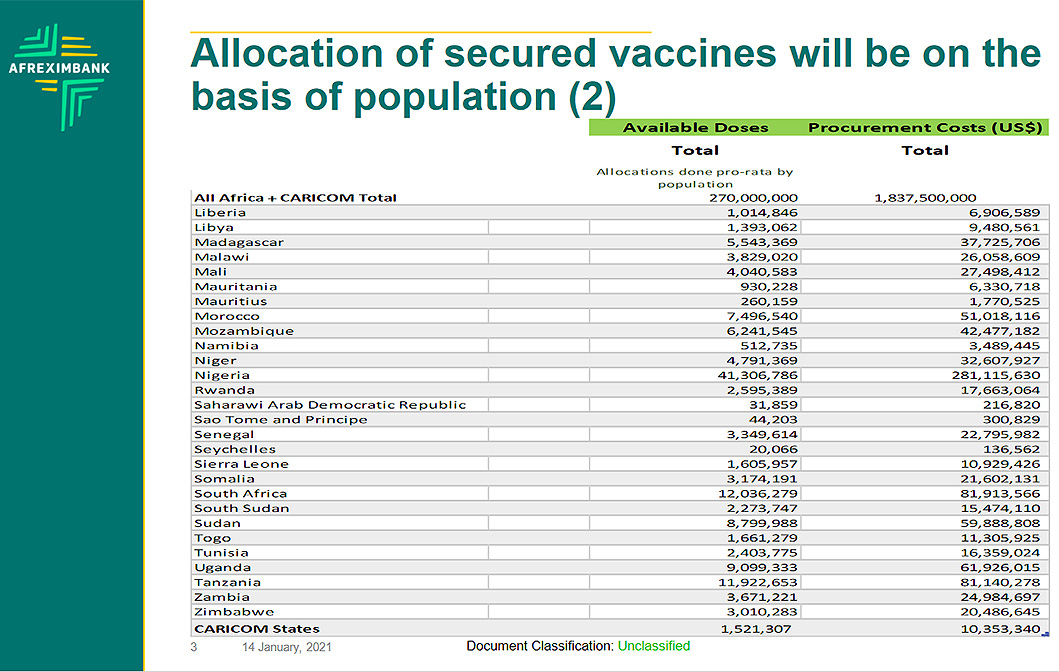
Guvamatanga declined to answer questions, but his letter betrays the Zimbabwe government’s reluctance to take the United States-produced vaccine which was approved by the World Health Organisation in March 2021.
A health expert familiar with Zimbabwe’s Covid-19 planning told ZimLive: “Zimbabwe appears to be holding out. They hope that under the African Union plan, the one in which the country can access three million doses with a loan from Afreximbank, and the United Nations-backed COVAX plan for free vaccines, that their preferred vaccines from China, Russia and India will become available, and only then will Zimbabwe take its share.
“Given the tight global supply chain, that’s unlikely to happen. They’re already discovering this with the finance minister’s pledge of a million doses every month appearing like total fibs with each passing day.”
Guvamatanga told Afreximbank that Zimbabwe is “committed” in the African Union Covid-19 vaccination scheme the bank is financing, and said the country would advise on its readiness to receive vaccines “once our internal processes have been concluded.”
Zimbabwe’s three million doses would cost US$20 million, according to an Afreximbank document published in January.
An Afreximbank spokesperson said: “For reasons of confidentiality, it is our policy not to disclose the details or comment on the content of correspondence.”
Zimbabwe has reported 1,611 Covid-19 deaths from 39,238 infections since the respiratory illness was first detected in March 2020.

